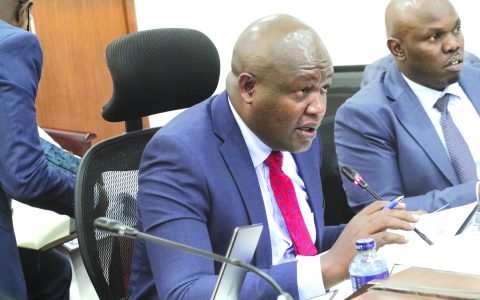Gen-Z’s revolt against unjust financing model

Generation Z, backed by millennials in Kenya, are pushing against the passage of the Finance Bill 2024/2025.
The devastating impact of floods and the associated costs are part of the government’s justification for raising more resources through taxes. However, for the youth, increasing taxes on essential goods without proper and prudent utilization of existing resources is unjust, hence their revolt.
“Generation Z are a serious bunch,” writes The Economist on April 20, 2024. They are well-connected and informed. In viral video clips making rounds on social media, several Gen-Zers acknowledge not fully understanding how to create a finance bill, but they do understand budgeting. When things are not working, they say, you focus on funding essentials.
Opulence exhibited
However, the opulence exhibited by some government officials contradicts this approach.
While the government’s rationale for enhancing certain taxes is to bolster local manufacturing, the country must be wary of the consequences of protectionism, which without subsidies, makes goods and services expensive. “Homeland economics,” as observed in The Economist on October 10, 2023, inhibits innovation and makes life miserable. It is therefore reasonable for young people to be scared of the new taxes.
The budget and Finance Bill 2024/2025 come after devastating floods and droughts that have destroyed infrastructure and means of livelihood.
Traces of climate action and environmental restoration are visible in the budget and finance bill, forming another track of justification for enhanced taxes by the government.
This brings to the fore the significance of tapping into global climate financing mechanisms.
The loss and damage fund, for instance, should assist developing countries like Kenya in navigating tough times as they develop the capacity to adapt to extreme weather events caused by climate change.
Political leaders must develop their emotional and social intelligence to address critical issues.
What Gen-Zers are asking for is leaders to future-proof their endeavors. They are doing so with the skills and tools they are conversant with—technology and smartphones. This group came into being during an era when smartphones were ubiquitous. Leaders must appreciate this and acknowledge that Gen Zers have better skills in navigating technology.
Therefore, using condescending language and castigating young people is detrimental to the effort to find lasting solutions.
This is the deal that the government and the President must embrace. Given that the government seems to be leaning towards homeland economics, where protectionism and high subsidies are common.
Climate finance
The government should use the digitally savvy Gen Z to advocate for climate finance resources.
The government should be soliciting views on how to address some of the challenges with minimal resources. The organizing power of youth in Kenya is an asset the government should not squander. The Reject Finance Bill movement is a beautiful crisis not to waste.
However, it is also important to note that young people have some work to do in understanding the policy-making process to engage meaningfully at every step. As we push for proper allocation of resources, we must also be vigilant in implementing the proposed initiatives and programs to ensure success.
— The writer is a Global Food Systems Youth Leader



